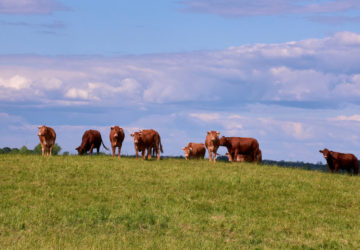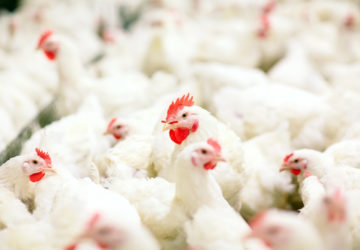A survey conducted by the UK-funded Agriculture and Horticulture Development Board (AHDB) finds that few consumers are willing to pay extra for meat that boasts a lower carbon footprint. Some foodie activists erroneously argue that livestock-related greenhouse emissions play a major role in contributing to global warming, despite all the evidence that such doomsday predictions are bogus. And still, the demand for more “earth-friendly” red meat just isn’t there: The AHDB survey of 2,000 people revealed that only one in eight of us is willing to pay extra for feel-good meat.
Half of consumers are “very concerned” about global warming and many wanted to “do their bit.” But they clearly aren’t putting their money where their mouth is.
“The impact of meat consumption on global warming is off the radar for most consumers and other considerations get in the way,” says AHDB interim chief executive Richard Lowe. “Most say they are willing to do their bit, but not really when it comes to making a personal or financial sacrifice.”
Such sacrifice is all for naught anyway. We pointed to the glaring errors in a 2006 United Nations report that claimed 18 percent of global greenhouse gases are related to animal agriculture. In 2008, the U.S. Environmental Protection Agency calculated that the entire agriculture sector accounted for only 6 percent of U.S. greenhouse gas emissions, while sources directly related to livestock production represented barely 2.5 percent of the total.




